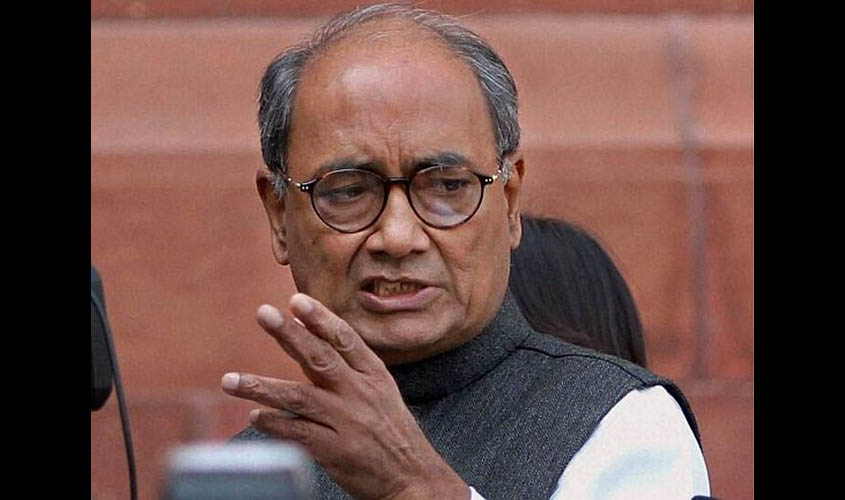Return of Diggy Raja
Now that Digvijaya Singh has completed his 3,300 km Narmada Parikrama, it would be interesting to see what he does next. He very poignantly announced that padyatra ke baad main pakode toh nahin taloonga (I won’t be frying pakodas after the padyatra). Well, from all accounts, his padyatra, which began on Dussehra last year, was a huge draw and culminating as it did on the eve of the Madhya Pradesh elections, it would be interesting to see what he plans to do next. Even if he doesn’t emerge as the CM face, he will play a role in deciding who will be. He has also hinted that he does not support Jyotiraditya Scindia’s candidature. Will he then back Kamal Nath? Nath was there to greet him at the completion of his parikrama and referred to his old friend as an “icon and pride”. For now, Nath has backed Scindia, but this could have been a strategic move to win over Scindia’s support for his own candidature. For Nath knows all too well that Digvijaya would never agreee on Scindia’s name. And of course, no one is ruling out Digvijaya himself emerging as the said consensus candidate at the last minute. While all these manoeuvring is going on, there is one small hurdle—the Congress has to first win the state!
The Enigmatic Answer
When Digvijaya’s wife Amrita, who was at his side during the entire six-month long parikrama, was asked by the media if she planned to follow her husband’s footsteps into politics, she replied rather enigmatically: “I will answer that question at the right time.” Watch this space for more!
Reimagining India
Husain Haqqani, the former Pakistan ambassador to United States, was in the capital recently to promote his new book, Reimagining Pakistan, Transforming a Dysfunctional Nuclear State. In the book, he argues that in order to change the course of Pakistan, one would have to change the discourse from ideological national to functioning nationalism. His claim is that Jinnah never intended Pakistan to be an Islamic state and envisaged a US-Canada type of equation between India and Pakistan. Well, clearly that model has not worked and in an interview to NewsX-Cover Story, Haqqani commented wryly that today in Pakistan, there are those who respect Hafiz Saeed more than Jinnah himself. Touché. However, his argument against the dangers of using religion and even one language to unite a state would make for an interesting case study for some of our hyper-nationalists back home, bent on reimagining India into a narrower and much more divisive mould.

